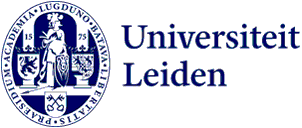
Social Advisory Council thinks along with the Faculty Board
Opening doors to society: that is the aim of the Social Advisory Council, which has recently been established by the Faculty of Humanities. The dean and two members of this Council tell us about what they hope to achieve.
‘As a faculty, we want to be at the heart of society, with our research and education', Dean Mark Rutgers explains. ‘This means that you actively seek contact with your environment and other stakeholders. The members of the Council are all prominently active within sectors relevant to the humanities, such as higher professional education, museums, politics and business. They can really think along on a strategic level. In addition, it is also beneficial for our internal policy to occasionally be critically approached from an outside perspective.'
Filter bubbles
‘The new council is a solid group,' says council member Frits Hoekstra. ‘I am impressed by who they've gathered.’ As chairman of the Stichting Confessioneel Onderwijs (Leiden Foundation for Confessional Education ed.), Hoekstra is supplier and customer of the faculty as an educational institution. But for him, the importance of the humanities extends farther than that: he sees, for example, filter bubbles on social media as a social issue on which the humanities can exert a positive influence. ‘People need to learn to place opinions side by side and to think about what they really see and hear.’
But in the meantime, the faculty is already doing a lot of good work, according to Hoekstra: 'An incredible amount of content is being published and the faculty organises fun activities, at all sorts of levels, that people can participate in. I think that the connection with Leiden’s society is very strong.’
Cultural entrepreneurship
Karin Doeksen is a founding partner of Dux International, a company that recruits directors for nonprofit organisations, from museums to NGOs. She thinks the new advisory council is a great initiative. ‘The openness is really appealing to me. All sorts of worlds are being brought together to take a look at what's happening in there.'
She herself notices, for example, that the importance of entrepreneurship in the cultural sector is rapidly growing. ‘Subsidies are decreasing. Where do you get your money from now, and how can you best use all your resources to, for example, put together a beautiful performance? Art schools have to anticipate.’
The humanities have a broader significance for Doeksen as well. ‘Theoretical research is hugely important. But ultimately you want to give people the tools they need to make progress on major issues such as inequality, sustainability and diversity. I think the faculty can play a big part in this. Complex social issues could be tackled through dialogue between disciplines, including ones of the social sciences.'
Getting to work
But what actually ends up happening with the council’s ideas? Rutgers explains: ‘We discuss the advice within the Faculty Board. Based on this, action points are formulated and then we get to work.'
‘A clear example is that during the last meeting, people suggested that we’d organise an impact day to which external parties would also be invited. This would facilitate direct contact (when this is possible again) between researchers/lecturers and interesting non-academic partners. We are going to develop this idea further, because we really want to execute it.’
More information on the Societal Advisory Council and her members can be found here (in Dutch).
